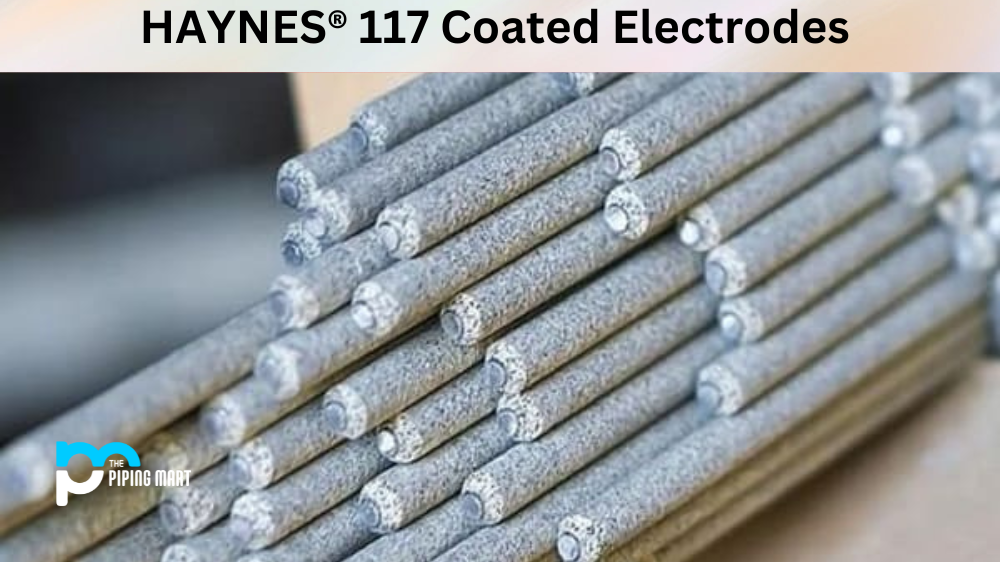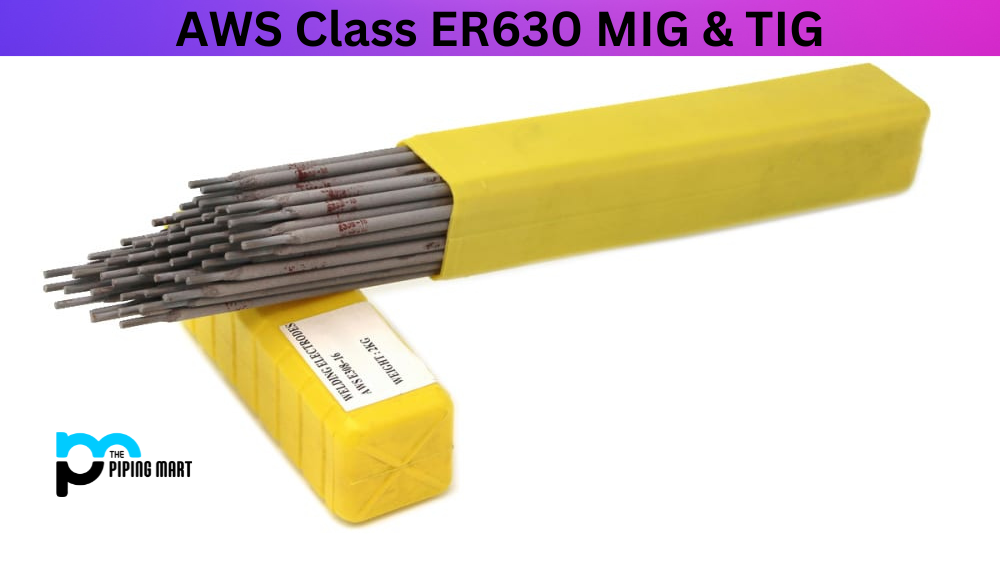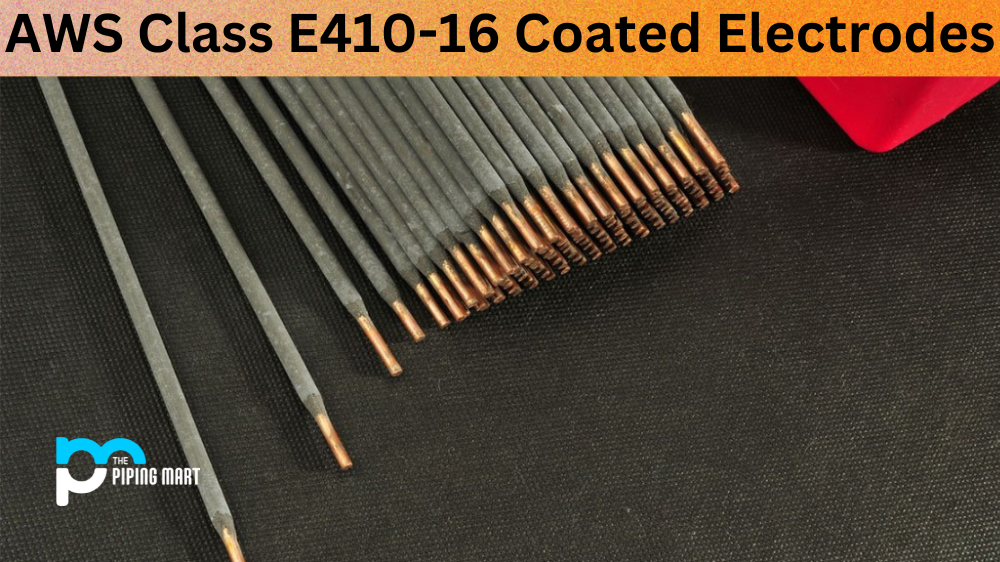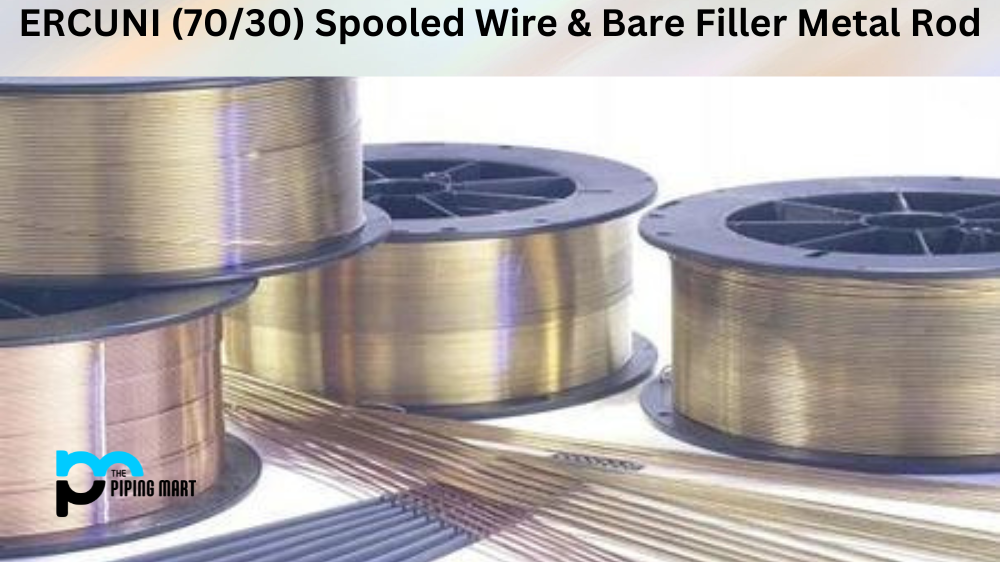HAYNES® 117 Coated Electrodes are highly engineered welding electrodes specifically designed for welding or repairing high-temperature alloys used in various industries, such as aerospace, power generation, petrochemical processing, and marine. Haynes International, a world leader in producing high-performance alloys, manufactured these electrodes. With exceptional mechanical and physical properties, HAYNES® 117 Coated Electrodes offer excellent resistance to corrosion and high-temperature oxidation. This post will discuss the composition, mechanical and physical properties and uses of HAYNES® 117 Coated Electrodes.
What is HAYNES® 117 Coated Electrodes?
HAYNES® 117 Coated Electrodes are advanced welding electrodes that provide superior strength, toughness, and corrosion resistance for joining high-temperature alloys such as those used in aerospace and power generation applications. The Iron-based alloy coating enhances the electrical conductivity of the electrode and provides an exceptionally rigid bond that increases tensile strength and fatigue properties. This unique welding technology can also be utilized to join components made from dissimilar metals with reliable results. HAYNES® 117 Coated Electrodes offer enhanced oxidation protection even in extreme environments, making them a preferred choice for many fabrication projects.
HAYNES® 117 Welding Electrodes Composition
HAYNES® 117 Coated Electrodes are composed of a nickel-chromium-based superalloy that contains molybdenum, tungsten, and cobalt. The high level of nickel and chromium in the alloy provides excellent resistance to corrosion and oxidation at high temperatures. Adding molybdenum and tungsten enhances the strength and hardness of the alloy, while cobalt adds flexibility and toughness to the weld deposit. The coating on the electrode helps improve arc stability and reduces spatter during welding.
| Nickel: | Balance |
|---|---|
| Chromium: | 21.0-26.0 |
| Cobalt: | 9.0-15.0 |
| Molybdenum: | 8.0-10.0 |
| Iron: | 5.0 max. |
| Manganese: | 0.3-2.5 |
| Niobium + Tantalum | 1.0 max. |
| Silicon: | 0.75 max. |
| Copper: | 0.5 max. |
| Other: | 0.5 max. |
| Carbon: | 0.05-0.15 |
| Phosphorus: | 0.03 max. |
| Sulfur: | 0.015 max. |
HAYNES® 117 Coated Electrodes Mechanical Properties
The mechanical properties of HAYNES® 117 Electrodes include a tensile strength of 110,000 psi, a yield strength of 40,000 psi, a hardness of 32-36 HRC, and an elongation of 40%. These properties make the electrode ideal for welding high-temperature alloys and applications requiring high strength, toughness, and erosion resistance.
| Tensile (psi) | 90,000 |
|---|---|
| Mpa | 620 |
| Elongation (%) | 30 |
HAYNES® 117 Welding Electrodes Physical Properties
The physical properties of HAYNES® 117 Welding Electrodes include a density of 0.321 lb./in3, a melting range of 2300-2425°F, and a specific heat of 0.101 BTU/lb·°F. The thermal conductivity of the alloy is 7.3 BTU/hr·ft·°F, and the coefficient of thermal expansion is 7.5×10- 6 in/in/°F. These properties are essential in selecting and application of HAYNES® 117 Coated Electrodes.
HAYNES® 117 Coated Electrodes Trade Name
| Class | UNS | Haynes |
| ENiCrCoMo-1 | W86117 | HAYNES® 117 |
HAYNES® 117 Welding Electrodes Uses
HAYNES® 117 welding wire are commonly used in welding and repairing high-temperature alloys for gas turbine components, exhaust systems, and heat exchangers. The electrodes are also used in petrochemical processing plants for welding pipes and valves that carry hot and corrosive fluids. Additionally, HAYNES® 117 Coated Electrodes are employed in marine applications for welding propellers, shafts, and other equipment that are exposed to seawater.
HAYNES® 117 Coated Electrodes Corrosion Resistance
The alloy’s high nickel and chromium content and the tungsten and molybdenum additions provide the electrode with excellent resistance to corrosion and oxidation in aggressive environments. The electrode exhibits excellent resistance to sulfuric acid, hydrochloric acid, and other corrosive media. The welds produced by HAYNES® 117 Coated Electrodes have superior resistance to pitting and crevice corrosion, making it an ideal choice for harsh and demanding applications.
HAYNES® 117 Welding Electrodes Heat Treatment
The recommended heat treatment for HAYNES® 117 Coated Electrodes is annealing at 2150°F followed by air cooling. This heat treatment enhances the flexibility and toughness of the weld deposit and relieves any residual stresses that may have developed during welding. The electrodes should not be heated above 2400°F to avoid an adverse effect on the mechanical properties of the alloy.
Conclusion:
HAYNES® 117 Coated Electrodes are high-performance welding electrodes with exceptional properties and corrosion resistance. The alloy composition, mechanical and physical properties, and recommended heat treatment make it one of the best choices for welding or repairing high-temperature alloys. HAYNES® 117 Coated Electrodes are widely used in various industries and applications, and they offer excellent resistance to corrosion and oxidation. If you need to weld high-temperature alloys, consider using HAYNES® 117 Coated Electrodes for superior performance and reliability.

Abhishek is a seasoned blogger and industry expert, sharing his insights and knowledge on various topics. With his research, Abhishek offers valuable insights and tips for professionals and enthusiasts. Follow him for expert advice on the latest trends and developments in the metal industry.




